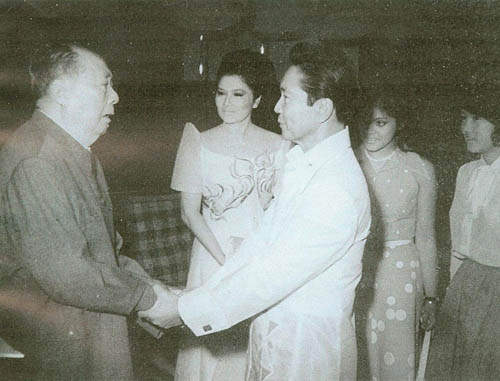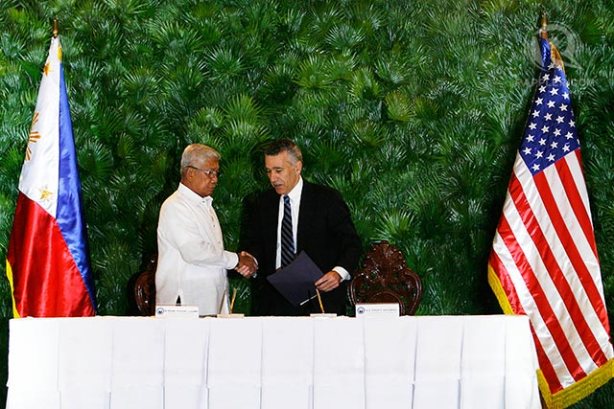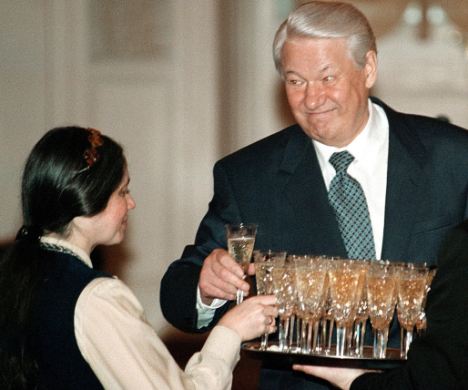“The changing triangular relations between the Philippines, the United States and the People’s Republic China: From Obama, Aquino, and Xi and beyond”
Amado M. Mendoza, Jr. and Richard Javad Heydarian
Part II
The situation summarized
To sum up, the Philippine government under the incumbent President Benigno Aquino III, soured its relations with China and cozied up further to its American ally, a power supposed to be rapidly implementing a ‘pivot’ (now ‘rebalancing’) to Asia in an ill-disguised attempt to contain the rising regional power.
In truth, a new but different cold war between the United States and China has started (Hendricks 2015) and the Philippines had enlisted as a frontline state.
It is true that relations between the Philippines (PH) and the People’s Republic of China (PRC) are currently frosty, nay, hostile and troubled even. Relations between the two countries (unequal in size, assets, power and influence) had not been quite straightforward since the PRC’s creation in October 1949. The appropriate metaphor is that of a roller-coaster (with the characteristic ups-and-downs). Furthermore, it would be very difficult to understand the bilateral Philippine-Chinese relations without situating it within a trilateral (or triangular) perspective—that is relations between the United States, the Philippines, and China. However, as the relations between the Philippines and China changed over the years, it is not always the case that the changes benefited the Philippines in a clear manner.
While the rather unfriendly (hostile, in fact) between the two during the 1950s up to the early 1970s was understandable (given the Cold War context), warm relations during the Ferdinand E. Marcos presidency (1965-1986) brought unmistakable gains both to the Philippines and China. The Philippines did not in fact go out on a limb since the United States, the so-called leader of the Free World during the Cold War, already reached out first to Mao Ze-dong, China’s supreme leader, to forge an alliance versus the Soviet Union (a strategic development made possible by the acrimonious Sino-Soviet split in the 1960s). In an astute move, Marcos leveraged the diplomatic opening to get China to stop supporting the Maoist insurgency (carried out the Communist Party of the Philippines-led New People’s Army) in the Philippines. The repeating botching by the New People’s Army (NPA) of smuggling operations of firearms and munitions supplied by China also factored in Beijing’s decision to distance itself from the Philippine Maoists (see Allan 1974, Feria 1993, Hamilton-Paterson 1998, and Malay 2005). On the other hand, China likewise benefited tremendously from this anti-Soviet American initiative since it regained its seat in the powerful United Nations Security Council (UNSC) and the one-China policy was adopted by most UN members leading to Taiwan’s loss of UN stature. China’s good fortune simply demonstrates anew the timeless wisdom of real-politik: that is, “the enemy of your principal enemy is a friend, albeit tactical”.
However, President Marcos’ initiatives towards China were reversed by President Corazon C. Aquino (1986-1992), who tried to extend the US military bases’ stay in the country. Her successor, President Fidel V. Ramos (1992-1998) looked east (though to Taiwan[1] and South Korea[2]) when the US-Philippine ties turned frosty after the military bases’ exit in 1991. However, as China started asserting its sovereignty in the South China Sea (SCS) in the mid-1990s, the Philippines renewed its relations with the US through the Visiting Forces Agreement (VFA) during President Erap Estrada’s short-lived administration (1998-2001).
The relationship took a different, friendlier turn during Gloria Macapagal Arroyo’s presidency (2001-2010) when China undertook its so-called ‘charm offensive’. Concretely, this meant loans, investments, and increased trade and tourist traffic from China to the Philippines. It was also during this time that a trilateral joint venture (between China, Vietnam, and the Philippines) to conduct a seismic survey of possible offshore oil and natural gas deposits in the SCS was formed. This joint venture involving three claimant states was made possible by hewing to the late Deng Xiao-ping’s formula of “joint-use-despite-ownership-questions”. However, the relationship between the two countries was soured by the ZTE national broad-band network scandal. It was quite clear that President Arroyo and her conferees, relatives and friends wanted to personally profit from the improvement of the bilateral relationship. As a result, the ZTE contract and the joint seismic survey were either cancelled and/or allowed to expire as President Arroyo attended to domestic political crises.
Relations went downhill since then as China tried to improve its position in the SCS as well to Balkanize the ASEAN regional organization through a judicious carrots-and-sticks strategy. A first happened in 2012–the non-issuance of an ASEAN Summit statement due to the lack of unity on China’s activities in the South China Sea.
While the Philippines is supposedly praised by the international community for standing up to a more powerful China and entered into an Enhanced Defense Cooperation Agreement (EDCA) with the United States in mid-July 2014, it currently is in a disadvantageous position vis-à-vis its biggest neighbor. This is true even if friends located farther away (aside from the US, Japan, South Korea and Australia) are pledging their support, these ‘protestations’ of help has not changed China’s conduct. Now, things have gone worse as a new Cold War is afoot in the western Pacific Rim, a development that bodes ill for East Asia’s economic health. In due course, China’s activism had caused the emergence of a firm anti-China regional alliance composed of the United States, Japan, South Korea, and the Philippines.
In this regard, however, the Philippines is not joined by other member-states in the Association of Southeast Asian Nations (ASEAN). Even if Thailand is a treaty ally of the US, it has not ranged itself firmly against China. Malaysia cannot be expected to join the Philippines firmly since it is also an SCS claimant. The same is true with Vietnam who is not only also a claimant but shares land borders with China. It must be recalled that China invaded Vietnam in force in 1979 during what was then called the Third Indochina War. The same circumspection is also exhibited by the other poorer mainland states such as Myanmar, Laos, and Cambodia—states which had received great largesse from China’s patronage. The newest state in Southeast Asia—Timor Leste (not yet an ASEAN member) is in the same situation. After the fall of Suharto, Indonesia has become inward-looking as she tries to consolidate a new democracy. Singapore can be likened to a businessman and is naturally conservative, more so in its foreign policy and relations.
In short, the Philippines really stands alone vis-a-vis China, notwithstanding the case it filed before the ITLOS (International Tribunal of the Law of the Sea). It will also have to face the consequences of an unfavorable decision (even as it seems the country has not prepared itself for such contingency). The US may be an ally but she is also mired elsewhere—in the fight against ISIS (aka ISIL and IS), Ukraine, Iraq, Syria, and in many other places—and thus may not be able to assist the Philippines well even if it wants to. It remains to be seen if the recent (public relations) move of the US Pacific Fleet chief to join a reconnaissance flight is an indication of the US’ firm resolve to stop China’s SCS activism (AP 2015). It is a question of capacity falling short of will, a matter of “imperial over-stretch”—that the British historian Paul Kennedy warned about in the late 1980s.[3] The US is scrambling to pivot or rebalance its forces from the Atlantic and other theaters (of operation) to the Asia Pacific region to supposedly maintain freedom of navigation in international waters and airspace. The US is also encouraging its Northeast Asian allies in the region to help it encircle China—a new encirclement reminiscent of the overall containment strategy directed against the USSR and its Warsaw Pact allies as well as China during the Cold War.
Given its own territorial disputes with China, Japan (especially under Prime Minister Shinzo Abe) has not only pushed back in the Yellow Sea (in the context of the Chinese-Japanese territorial dispute over the so-called Senkaku or Diaoyu islands). Tokyo has also offered material assistance to embroiled countries in Southeast Asia.[4] South Korea meanwhile clinched a deal to supply a squadron of advanced FA-50 multi-role jets to the Philippines with the first delivery of 2 planes expected in December 2015.[5]
Indeed, the strategic environment in East Asia is unfolding, albeit in a rapid fashion. An appropriate (even if old) theory that could help better understand the new East Asian strategic environment exists. The Power Transition theory is a theory about the cyclical nature of war, in relation to power (of states) in international relations. Created by A.F.K. Organski, and originally published in his textbook, World Politics (1958), contemporary power transition theory describes international politics as a hierarchy, with different degrees of power between states. The objective of the theory is to investigate the cyclic condition of wars, and how transition of power in terms of machtpolitik affect the occurrence of these wars.
The principal predictive power of the theory is in the likelihood of war and the stability of alliances. War is most likely, of longest duration and greatest magnitude, when a challenger (a revisionist power; one of the great powers) to the dominant power (the global hegemon) enters into approximate parity with the dominant state and is dissatisfied with the existing system. Similarly, alliances are most stable when the parties to the alliance are satisfied with the system structure. This leads to the view that when the balance of power is unstable (i.e. one or two nations have taken a dominant role in geopolitics), the likelihood of war is greater.
According to Organski:
An even distribution of political, economic, and military capabilities between contending groups of states is likely to increase the probability of war; peace is preserved best when there is an imbalance of national capabilities between disadvantaged and advantaged nations; the aggressor will come from a small group of dissatisfied strong countries; and it is the weaker, rather than the stronger; power that is most likely to be the aggressor.
Using Organski’s theory, China can be characterized as a ‘revisionist’ power dissatisfied with the existing balance of forces in the world as well as in Asia. Meanwhile, the United States is a ‘status quo’ power (or a standpatter) working to preserve its hegemony. It is joined by other status quo powers like Japan, South Korea, and Australia. Since it does not share US interests and preferences, the Russian Federation under President Vladimir Putin is China’s natural ally.[6] The same is true with Pyongyang since Seoul is on the opposing side. India is in a predicament since it shares a land border with China and fought a brief border war with the latter in the 1960s. Geopolitical realities may force India to either align with China or opt for neutrality in the conflict.
___________________________________________________________________________
Notes:
[1] Taiwan responded to its diplomatic isolation with a ‘carrot-diplomacy’ on its own: ensuring the flow of loans, direct investments, and ODA to friendly countries who are willing to accept the diplomatic fiction called TECO, or Taiwan Economic Cooperation Office, in their respective capitals, which in truth are the equivalent of embassies of duly-recognized states. Taiwan was able to dispense carrots around the world (the Philippines included) given its economic prosperity and hefty international reserves. In fact, China’s new economic policy helped by stimulating cross-Strait economic and socio-cultural relations between Beijing and Taipei in a parallel of South Korea’s ‘sunshine policy’ vis-à-vis North Korea.
[2] South Korea joined the ranks of the advanced industrial economies grouped in the Organization for Economic Cooperation and Development (OECD) in the mid-1990s even before she was temporarily convulsed by the shocks generated by the so-called Asian Financial Crisis in the late 1990s. The setback in Seoul proved to be short-lived as economic growth was restored in the 2000s albeit on a different basis compared to the growth sparked by the state-capitalist regime initiated by South Korean leader Park Chung-hee in the 1970s and 1980s.
[3] Paul Kennedy. 1987. The Rise and Fall of the Great Powers. New York: Random House/Vintage Books.
[4] In mid-2013, Prime Minister Shinzo Abe promised to supply ‘grey’ (combat) patrol vessels to the Philippines during a state visit. Please see http://www.huffingtonpost.com/2014/05/30/shinzo-abe-china-disputes_n_5418205.html and http://www.philstar.com/headlines/2013/07/26/1014401/japan-pm-manila-state-visit.
[5] Please see http://www.rappler.com/nation/77956-aquino-philippines-fighter-jets.
[6] Russia had recently agreed to sell its most advanced S-400 missile systems to China. Please see <http://www.themoscowtimes.com/business/article/china-and-russia-sign-contract-for-s-400-missile-systems/519010.html>.















